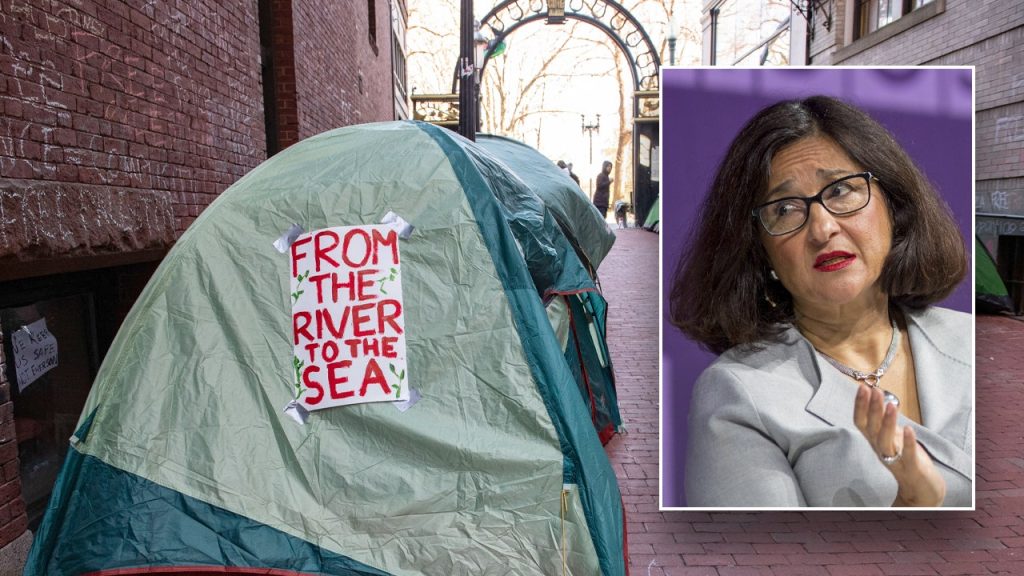The recent surge in antisemitic attacks and harassment has made life uncomfortable for Jewish students at colleges across the country, with Columbia University emerging as a focal point after more than 100 protesters were arrested there. The campus was filled with tension and fear, leading to the cancellation of in-person classes as the Biden White House condemned anti-Jewish hatred on the first night of Passover. The university’s president, Minouche Shafik, under pressure after a hearing on antisemitism, has cracked down on demonstrators who violate rules.
Antisemitic incidents have risen since Hamas terrorists launched attacks on Israel in October, leading to a wave of protests across the country. Rabbi Elie Buechler from the Orthodox Union advised nearly 300 Jewish students to stay away from campus due to safety concerns, stating that it was not their responsibility as Jews to ensure their safety. Meanwhile, pro-Palestinian demonstrators faced automatic suspension and arrest for refusing to vacate a protest camp set up on campus, leading to tension and clashes.
Mayor Eric Adams expressed horror and disgust at the antisemitism occurring at and around Columbia University, while the university president condemned the intimidating and harassing behavior taking place on campus. Some Jewish students reported being subjected to verbal abuse and physical attacks, with the protesters expressing anti-Semitic sentiments and attempting to burn an Israeli flag. The uproar has left Jewish students feeling isolated and unsafe, with many questioning the tolerance and inclusivity of the campus environment.
Some Jewish students who agree with the demonstrators regarding the unacceptable death toll in Gaza struggle to comprehend calls for Israel’s destruction and the underlying bigotry directed towards Jewish individuals. A student referred to as Katie denounced the anti-Israel and anti-Jewish beliefs held by some of her peers as disturbing, emphasizing her own experience of escaping religious persecution in Iran. The ongoing ordeal at Columbia has prompted her to move off-campus and has tainted her dream of studying at the university.
The events at Columbia University have sparked a wider conversation about the rise of antisemitism and anti-Israel sentiment on college campuses across the country. The combination of the New York media market, arrests, and protests has attracted attention to the situation, prompting a reassessment of the need to address bigotry and discrimination within academic institutions. The growing backlash against antisemitism and harassment indicates a potential turning point where individuals are standing up against intolerance and hate, advocating for a more inclusive and respectful environment on campus.
The incidents at Columbia University reflect a broader trend of escalating tensions, fear, and discomfort faced by Jewish students on college campuses nationwide. The recent protests, arrests, and clashes have highlighted the urgent need for universities to address antisemitism, discrimination, and intolerance within their communities. The pushback against hatred and bigotry is gaining momentum, signaling a potential shift towards greater awareness, understanding, and unity among students and faculty members in creating a more inclusive and supportive environment for all individuals.


